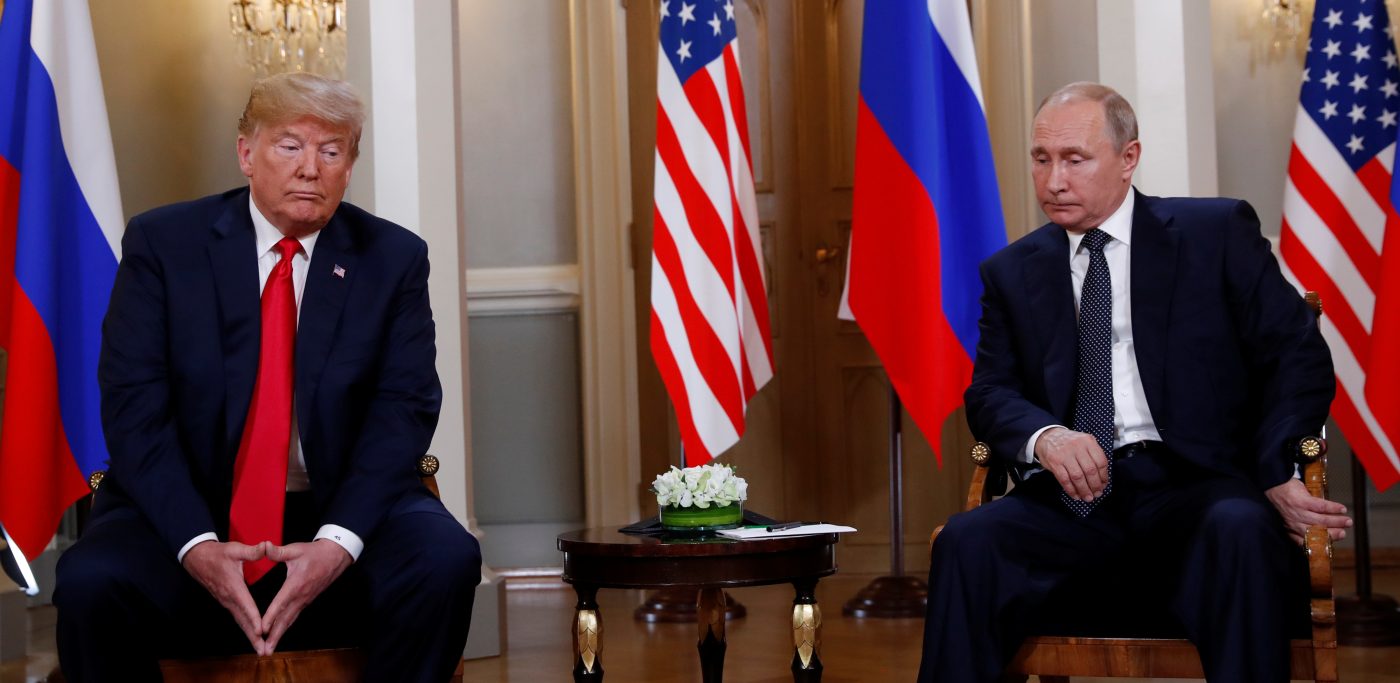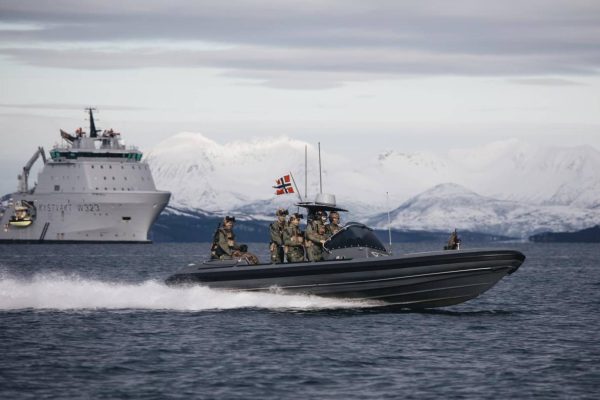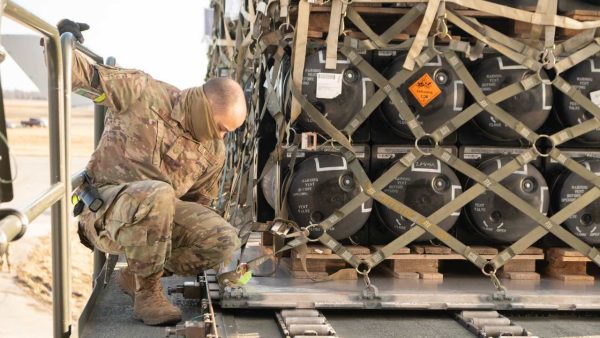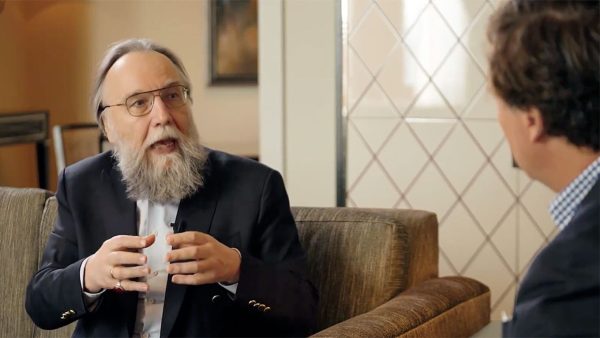Apart from showing Trump’s disdain for NATO, European security issues, and American interests, and in the view of many, his unfitness for high office, his February 10 remarks triggered deep apprehension among Washington’s European and Asian allies because they lend force to their worst nightmare — American abandonment.
Most of the ensuing commentary denounced Trump’s irresponsible statecraft because of its impact on NATO. The White House termed them “unhinged.” But while much can and will be said about that, this author believes that these reckless remarks threaten security far beyond the European continent.
Many writers on NATO have warned that if the alliance were to fail, the result would be a reversion to the nationalization of European security, i.e. an outcome where every state pursues its own policy regardless of others. Without the US to cajole and threaten its role as global big brother, disputes may escalate out of control.
This could lead to a renewed outbreak of Serb-Kosovar tensions or ethnic conflict in Bosnia, two areas where the Kremlin has demonstrated its desire to frustrate conflict resolution.
Authoritarians like Hungary’s Viktor Orbán or pro-Russian leaders like Slovakia’s Robert Fico, or the many pro-Russian elements in Austria and Germany, would be emboldened to pursue more vigorously selfish pro-Russian policies, and pro-Russian right-wing parties like Marine Le Pen’s National Front would gain support beyond existing Russian subsidies due to the demoralization of France’s leading parties.
Indeed, former president and now Deputy Chairman of Russia’s Security Council, Dmitry Medvedev, has announced that Russia is supporting and will support opposition parties in the West both openly and covertly.
This not only confirms what we all know about Russia’s subversive activities globally, in and beyond Europe but also strongly suggests an intensification of the Kremlin’s activities in the US, as we have seen in every election since 2016.
This includes Putin-sanctioned intervention in the 2020 presidential election to influence Trump’s associates. Similarly, Russia tried to interfere in the 2022 Congressional elections and, according to intelligence officials, will likely do so again this year.
However, Trump’s national security failings hardly end here. He fails to recognize that NATO is a democratizing instrument for preserving democratic civilian control of its members’ militaries.
Since NATO insists on democratic civilian control of the armed forces as a condition for membership, it represents a strong obstacle to military coups or the penetration of secret military or intelligence forces into the regular armed forces, government, and society (all of which are fundamental trademarks of Putin’s Russia.)
That control also impedes members’ use of their armed forces for foreign conflicts within Europe. If that control is removed, the ensuing chaos would contribute not only to the renationalization of European security but also to its remilitarization and the outbreak of new conflicts in Europe, even beyond Russia’s exploitation of NATO’s disintegration.
Finally, there is the nuclear issue. There is no doubt that NATO, as its leaders frequently proclaim, is a nuclear alliance largely based on American nuclear weapons.
Those weapons lie at the heart of NATO’s deterrence and, thus, European security. A perception that Trumpian America would not defend its allies will accelerate global, i.e. not only European, but also Asian efforts to obtain nuclear weapons for self-defense against Russia, China, North Korea, Iran, and other dictatorial states.
We already see that European governments are contemplating rebasing or relocating American nuclear weapons in Europe (the UK is preparing to accept new US tactical nuclear weapons removed after the end of the Cold War) following Russia’s all-out invasion of Ukraine in 2022.
And fears about Trump’s return have already sparked a debate in Europe — on February 13, Germany’s Finance Minister Christian Lindner argued that Europe considers falling back on the British and French strategic nuclear forces. While far smaller than the US deterrent, these are significant; but whether Putin would believe London and Paris would risk their countries in defense of Tallinn or Warsaw is another matter.
Putin and his acolytes meanwhile continue to issue regular threats to use nuclear weapons if NATO continues aiding Ukraine, and have now escalated these threats by using hypersonic missiles against Ukraine.
Russia believes these missiles cannot be defended against, and since all new Russian missiles are dual-capable, i.e., nuclear and conventionally capable systems, they could well signal an escalatory threat.
The Kremlin has also stationed nuclear missiles in Belarus, clearly to bring nuclear threats closer to the borders of our NATO allies. Not surprisingly, it did so despite official reassurances that it would not deploy nuclear weapons abroad, another indicator of the veracity of Russian official rhetoric.
And these deliberate threats to the international nuclear and non-proliferation order also include the deliberate violation of the Non-Proliferation Treaty (NPT) by attacking Ukraine, a treaty signatory, in 2014 and 2022. It is, therefore, no surprise that a top Polish general now advocates that his country obtain a nuclear weapon for self-defense against Russia.
And this only applies to Europe. We need no imagination to grasp that the open display that the US alliance and nuclear guarantees to NATO allies are incredible will trigger an explosion of interest in nuclear weapons in South Korea and Japan.
Such sentiment in high places already exists, so such a race is quite likely. This certainly will also be the case if American guarantees evaporate in the Middle East and Iran continues to be unhampered or obtain foreign support in its quest for nuclear weapons.
Under the circumstances, Trump’s statements, seen by some as mere rabble-rousing, in fact constitute a threat not only to NATO but to the international nuclear order and international security. Is it any surprise that the Kremlin currently looks like the cat that’s had the cream?
Stephen Blank, Senior Fellow, Foreign Policy Research Institute, Fpri.org
Europe’s Edge is CEPA’s online journal covering critical topics on the foreign policy docket across Europe and North America. All opinions are those of the author and do not necessarily represent the position or views of the institutions they represent or the Center for European Policy Analysis.





